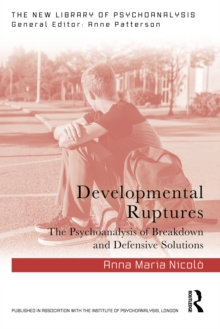
Ordinary People and Extra-ordinary Protections : A Post-Kleinian Approach to the Treatment of Primitive Mental States PDF
by Judith L. Mitrani
Part of the The New Library of Psychoanalysis series
Description
Many people come to analysis appearing quite 'ordinary' on the surface. However, once below that surface, we often come into contact with something quite unexpected: 'extra-ordinary protections' created to keep at bay any awareness of deeply traumatic happenings occurring at some point in life.
Judith Mitrani investigates the development and the function of these protections, allowing the reader to witness the evolution of the process of transformation, wherein defensiveness steadily mutates into communication.
She lucidly and artfully weaves detailed clinical with a variety of analytic concepts, and her original notions - including 'unmentalized experience' and its expression in enactments; 'adhesive pseudo-object relations' and the way in which this contracts and compares with normal and narcissistic object relations - provide valuable tools for understanding the infantile transference/countertransference and for the refinement of our technique with primitive mental states.
Ordinary People and Extra-Ordinary Protections will prove stimulating and accessible in its style and substance to a broad analytic readership, from the serious student of psychoanalysis to the most seasoned professional.
Information
-
Download - Immediately Available
- Format:PDF
- Pages:200 pages
- Publisher:Taylor & Francis
- Publication Date:04/03/2009
- Category:
- ISBN:9781134578870
Other Formats
- Paperback / softback from £40.65
- EPUB from £34.82
Information
-
Download - Immediately Available
- Format:PDF
- Pages:200 pages
- Publisher:Taylor & Francis
- Publication Date:04/03/2009
- Category:
- ISBN:9781134578870










